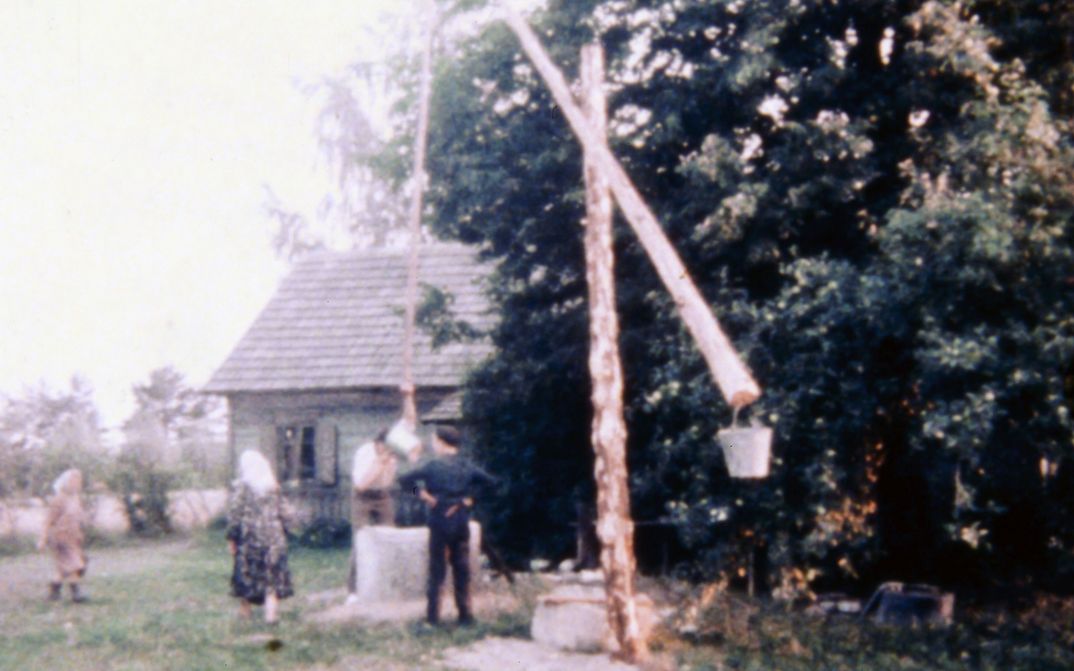Reminiscences of a Journey to Lithuania

Wed 18.01.
18:00
Director
Jonas Mekas
FRG, USA / 1972
82 min.
/ 16 mm
/ Original version
Program
Memories
Cinema
Arsenal 1
zu den Ticketszu dem KalenderWelcoming speech: Stefanie Schulte Strathaus, Opening: Christoph Gnädig, Christian Hiller, Anne König
In REMINISCENCES OF A JOURNEY TO LITHUANIA, the presence of memory is steep. The film was made in 1971–72, when Mekas travelled back to Lithuania for the first time since he left twenty-five years earlier. And yet Reminiscences begins with the establishment of Mekas’ new roots in America. “It was good to walk like this and not think anything about the last ten years,” he says over footage of boys playing in the Catskills. “For the first time I did not feel alone in America. This was the beginning of my new home.”
The new home Mekas had found in New York, a life full of the friends and art seen in Walden, did not, however, undo the pain of losing his Lithuanian home. Over images of the black and white streets of Williamsburg, he laments, “the minute we left we started going home, and we are still going home. I am still on my journey home.”
“I’m a displaced person on my way home in search for my home, retracing bits of past, looking for some recognisable places of my past,” he says in a voiceover. Instead of filming the changes that had occurred, he attended to what had remained the same: his mother’s earthen stove, and the fields and woods that surround his home. In his notes on the film he writes, “you don’t see how Lithuania is today: you see it only through the memories of a Displaced Person back home for the first time in twenty years.” Mekas, caught up in the collision of past with present, was filming the Lithuania of his childhood. At his brother Kostas’ home, for example, the reunited brothers took out antiquated scythes to farm wheat, even though they were no longer used. For Mekas, “it was real enough as a memory.”
“As a displaced person, I felt that I had lost so much, my country, my family, even my early written diaries, ten years of them, that I developed the need to try to retain everything I was passing through, by means of my Bolex camera. It became an obsession, a passion, a sickness. . . . When you go through what I went through, the wars, occupations, genocides, forced labor camps, displaced person camps, and lying in a blooming potato field—I’ll never forget the whiteness of the flowers, my face down to the earth, after jumping out the window, while German soldiers held my father against the wall, a gun in his back—then you don’t understand human beings anymore. I have never understood them since then, and I just film, record everything, with no judgment, that I see. Not exactly ‘everything,’ only the brief moments that I feel like filming. . . . What makes me choose those moments? I don’t know. It’s my whole past memory that makes me choose the moments that I film.” (J.M.)